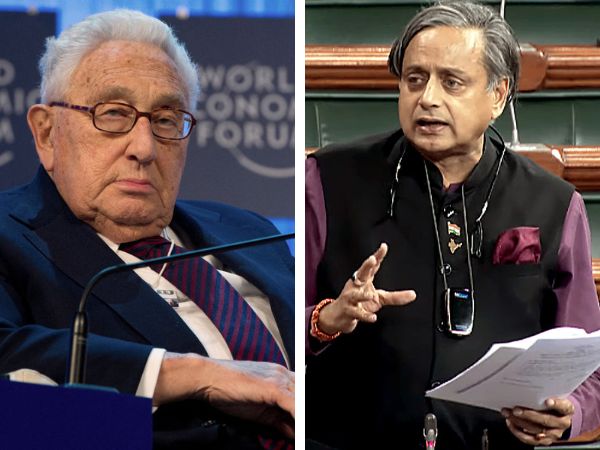- Thursday, December 26, 2024
The Indian MP, a former diplomat himself, said Kissinger had lived an extraordinary life.

By: Shubham Ghosh
INDIAN politician Shashi Tharoor has called the death of Henry Kissinger, former US secretary of state and a major diplomatic voice to shape Washington’s policy in the Cold War era, as the “end of, by any definition, an extraordinary life”.
Posting on X a BBC report on the death of the diplomat who was 100, Tharoor, a parliamentarian of India’s opposition Indian National Congress, said the former was ‘indeed both a pivotal and polarising figure”.
The 67-year-old Tharoor, who was once a diplomat in the United Nations, recalled his days in New York when he was on first-name terms with Kissinger and said he was still “amazed” how the veteran diplomat had transformed himself into an advocate of closer US-India ties three decades after being the architect of Washington’s pro-Pakistan tilt in the early 1970s.
Read: When Modi told Kissinger about India’s efforts to become $5 trillion economy
He then said that Kissinger’s long lifespan was advantageous since it helps as people don’t remember one’s earlier statements and actions.
“For a few years in New York, I knew him well enough to be on first-name terms with him. I was still amazed how “Henry”, the architect of the US tilt towards Pakistan in 1971, could morph with such insouciance into the most prominent advocate of closer US-India relations three decades later. It helps to live long enough so people don’t remember your earlier statements and actions!” he said on X.
The end of, by any definition, an extraordinary life. Henry Kissinger was indeed both a pivotal and a polarising figure, as this @BBC obituary states. For a few years in New York, I knew him well enough to be on first-name terms with him. I was still amazed how “Henry”, the…
— Shashi Tharoor (@ShashiTharoor) November 30, 2023
Kissinger, it may be noted here, harboured a strong anti-India attitude and was also against the liberation of East Pakistan (today’s Bangladesh) from West Pakistan (today’s Pakistan) and had backed Islamabad in its fight against New Delhi despite the brutal atrocities that were unleashed on the eastern wing of united Pakistan since it helped the US in reaching out to China and corner the erstwhile USSR, its Cold War enemy. He also had a disdain for former Indian prime minister Indira Gandhi, along with US president Richard Nixon under whom he had served.
In the era of prime minister Narendra Modi, however, Kissinger was in favour of strong ties between the US and India.